What we know about the Clutha tragedy
- Published
An air accident investigation report into the Clutha helicopter crash has been shown to the families of those who died. But what do we know about the tragedy?

When and where was the Clutha helicopter crash?
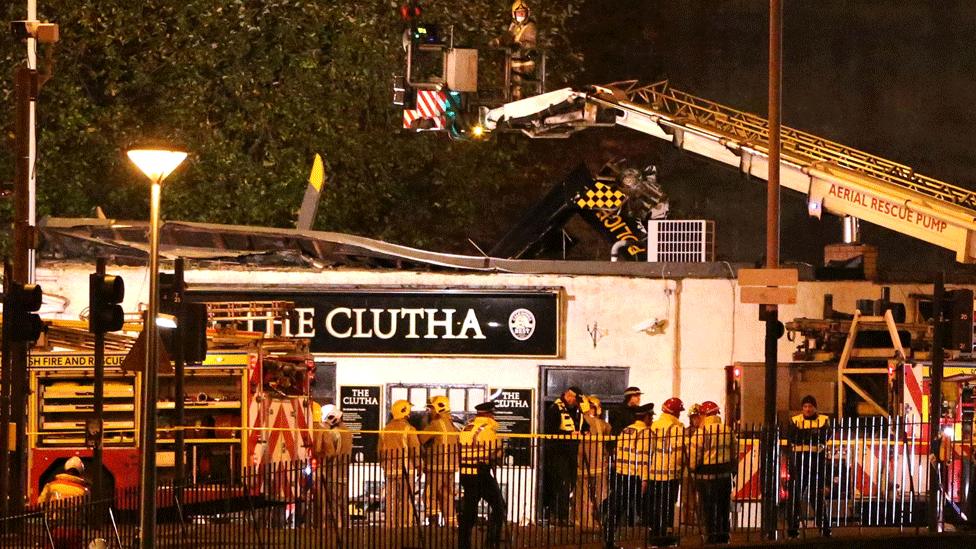
A police helicopter crashed into the Clutha Bar in Glasgow
On Friday 29 November 2013, a police helicopter fell from the sky and crashed through the roof of the Clutha bar in Glasgow's city centre.
The pub, favoured for its live music events, was playing host to ska band Esperanza, and was packed with about 120 people when the tragic events began to unfold at 22:25.

How many people died?
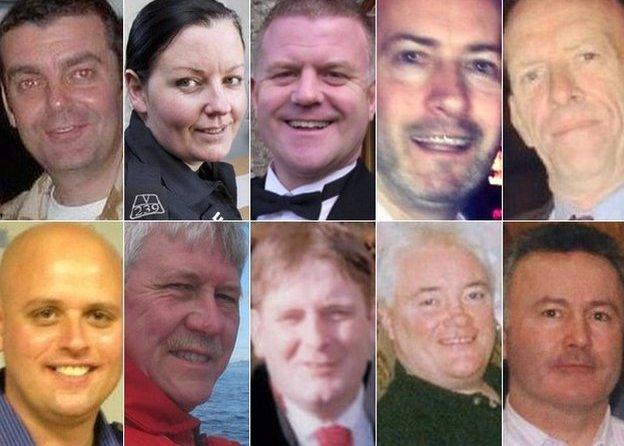
Clutha victims: (Top: left to right) David Traill; Pc Kirsty Nelis; Pc Tony Collins; Gary Arthur; Samuel McGhee (Bottom: left to right) Colin Gibson; Robert Jenkins; Mark O'Prey; John McGarrigle; Joe Cusker
Ten people lost their lives, three on board the helicopter, and seven who were in the bar.
The helicopter crew were pilot David Traill, and Pcs Kirsty Nellis and Tony Collins.
Those killed in the pub were John McGarrigle, Mark O'Prey, Gary Arthur, Colin Gibson, Robert Jenkins, and Samuel McGhee.
Joe Cusker was pulled from the wreckage alive but later died in hospital.
The 32 people who suffered injuries, 12 seriously, were all taken to hospitals across Glasgow after the crash.
The owner of the Clutha, Alan Crossan, said "it's heartbreaking" when he thinks of those who died that night.

Has there been an investigation?
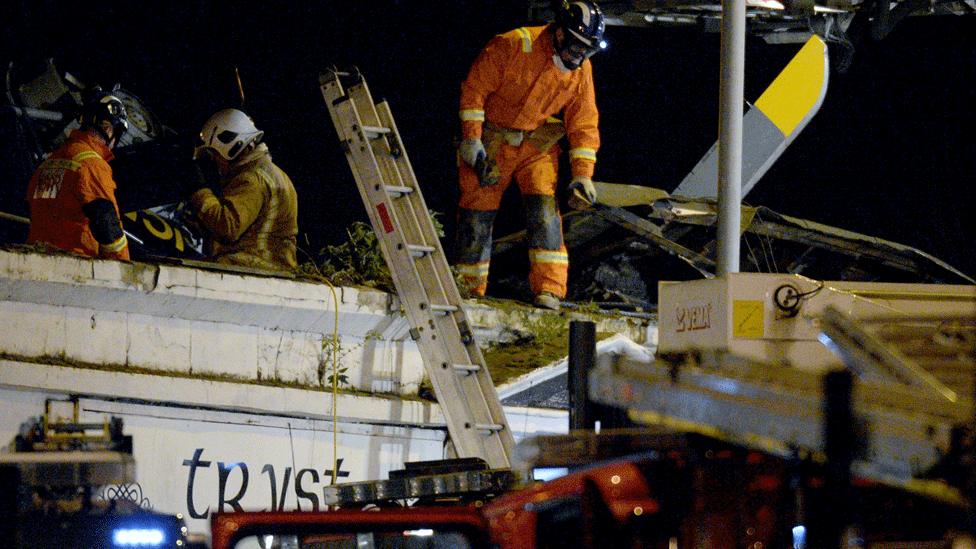
Three people in the helicopter and a further seven in the pub were killed
An investigation was launched by the Air Accident Investigation Branch (AAIB), which had inspectors and support staff on the scene at 09:15 the following day.
Initial examinations of the helicopter were carried out at the site, but the wreckage was then transported to the AAIB's headquarters in Aldershot, Hampshire, for further inspection.
The AAIB later released an update confirming it was working closely with partners across Europe and the aircraft manufacturer and operator "to establish the cases and contributory factors that led to the accident".
The final report was made available, external to the public on 23 October.

What did it say?
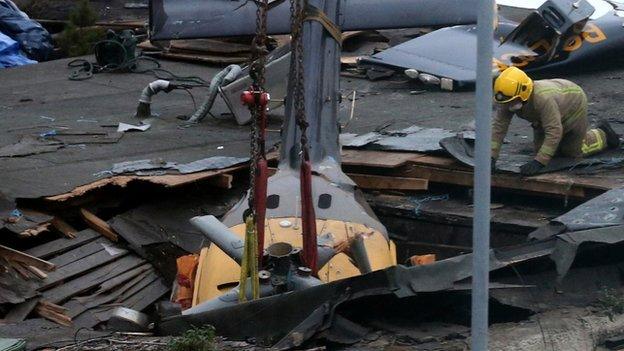
10 people were killed in the accident on 29 November 2013
The report concludes that fuel transfer pumps were switched off, meaning that 73kg of fuel in the main tank became unusable.
Both of the engines "flamed out" sequentially while the helicopter was airborne as a result of fuel starvation, and a controlled landing was not achieved for "unknown reasons".
It is not known why no MAYDAY call or indication of a problem with the helicopter was received from the pilot.
The AAIB report has also recommended that all police helicopters are fitted with black box flight recording equipment.
Deputy Chief Constable Iain Livingstone, from Police Scotland, said: "The publication of the report by the AAIB contains a large amount of technical detail and is a significant milestone.
"The AAIB's findings will now be considered by Police Scotland's investigation team and the Crown."
The Crown Office has said a Fatal Accident Inquiry (FAI) will be carried out "as soon as is possible".

What has happened to the Clutha pub?
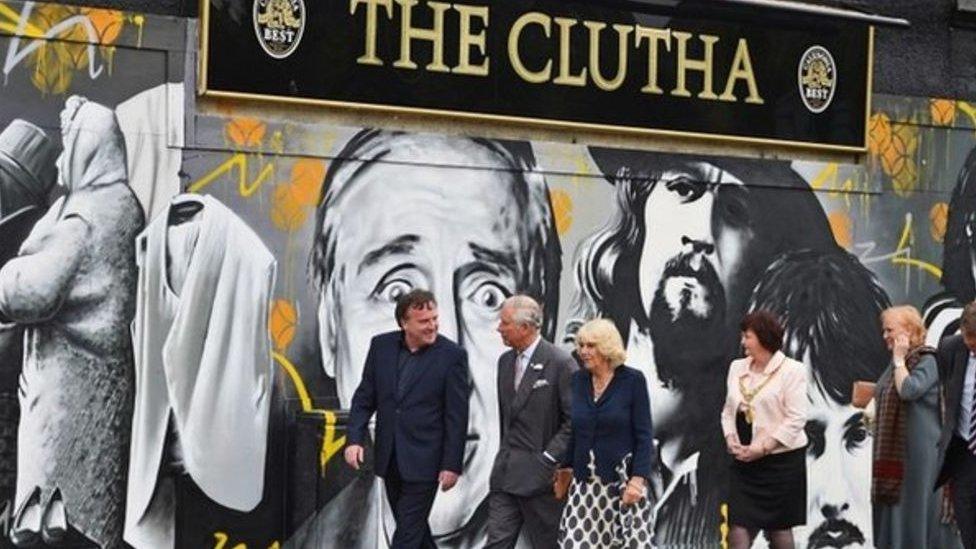
Prince Charles and Camilla admired the mural outside the Clutha bar on a visit to the venue last month
Following the incident, the Clutha remained closed and in a state of disrepair for some time before refurbishment began.
It was reopened in July of this year in a launch attended by First Minister Nicola Sturgeon, emergency workers and the families of some of those killed in the crash.
The new bar is built into the old smoking area of the pub, and it remains unclear if the original building will return to its previous use.
In the aftermath of the crash, owner Alan Crossan said it was the reaction of people of Glasgow which prompted him to establish the Clutha Trust, which has raised more than £500,000 through a series of concerts.
The aim of the charity is to enable disadvantaged children and young people to become involved in the arts.
- Published23 October 2015
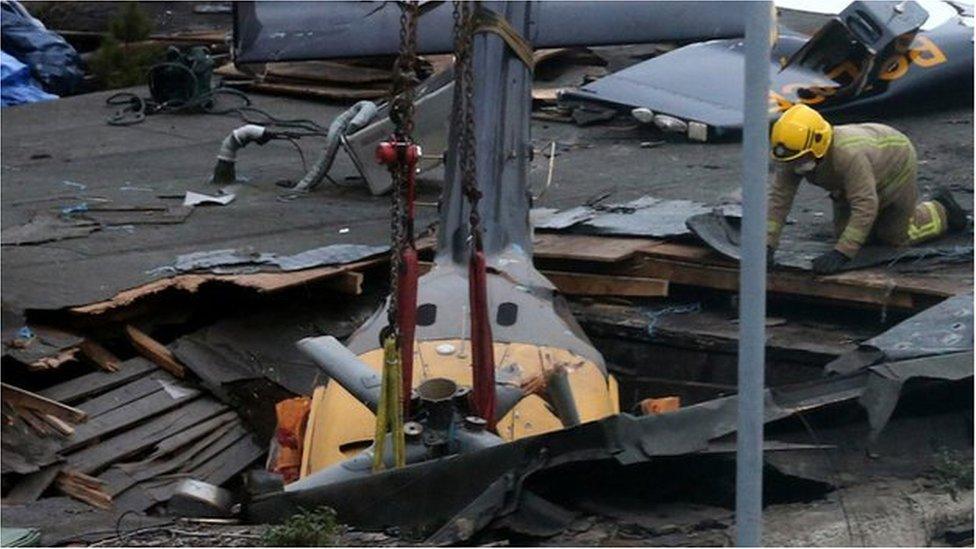
- Published23 October 2015
